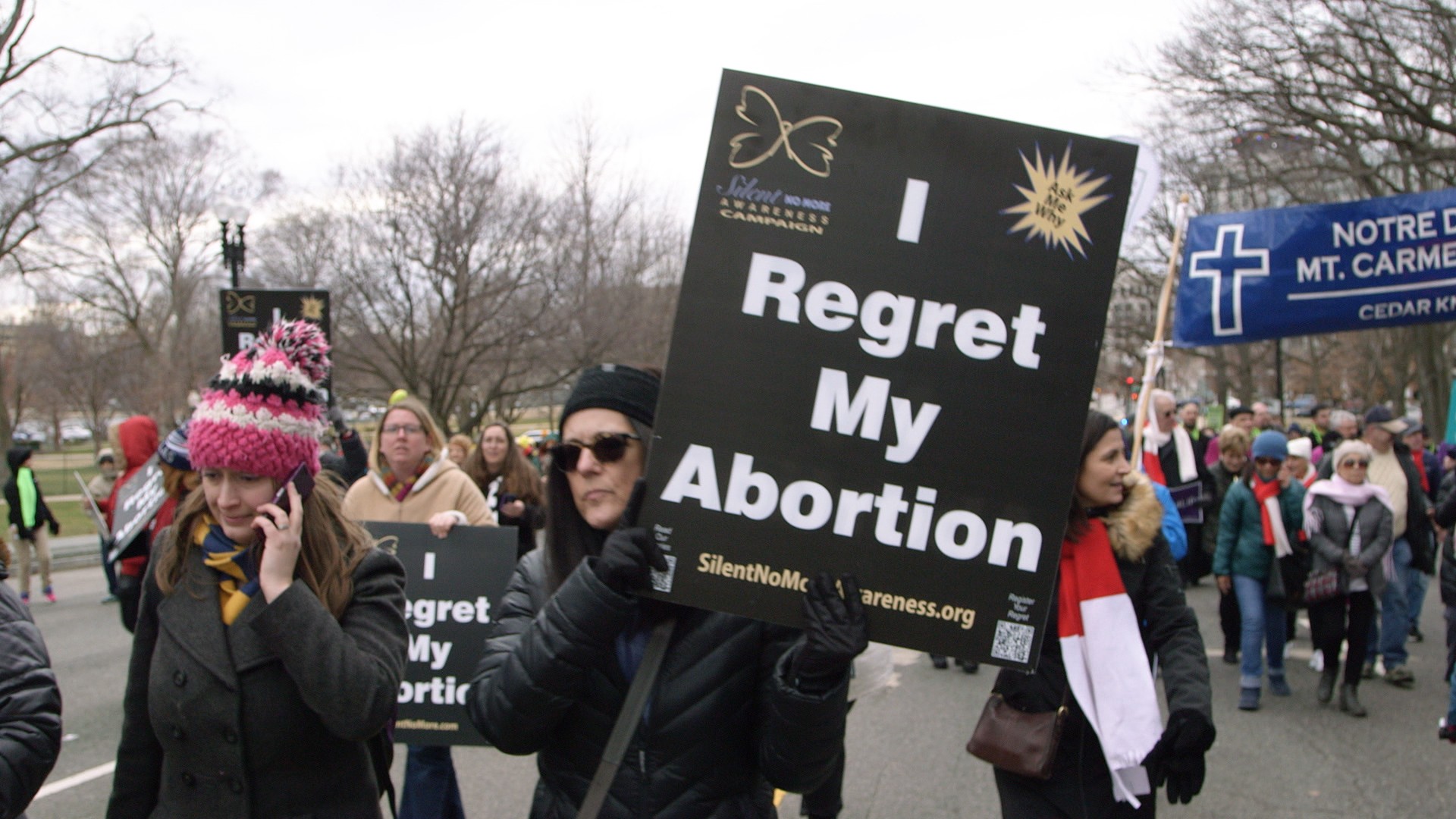Holly Clark/Stocksy
Yesterday, Georgia Governor Brian Kemp signed a bill into law that would ban abortions after about six weeks of pregnancy, which is before most people know they're pregnant. News outlets reported that Georgia became the fourth state in 2019 alone to ban abortion after a fetal heartbeat can be detected, lumping it in with other "heartbeat" bills. The bill is an unconstitutional restriction on abortion before fetal viability, and groups including the American Civil Liberties Union have already said they will challenge it.But this is not merely a six-week ban on abortion—it's even more insidious than that. Georgia's bill is actually a personhood law in disguise, effectively criminalizing not just abortion providers, but also pregnant people for having abortions or even miscarrying. It's a near-total ban on abortion.HB481, or the Living Infants Fairness and Equality (LIFE) Act, says that “unborn children are a class of living, distinct person” to whom the state should provide “full legal recognition.” The law specifically declares: "It shall be the policy of the State of Georgia to recognize unborn children as natural persons." The recent bills in Ohio, Kentucky, and Mississippi do not make this additional leap.This is personhood language, which makes the reach of the bill much, much wider. In an op-ed, the lead sponsor of the bill, Georgia Representative Ed Setzler, said flat-out: "HB-481 is unlike any other 'heartbeat bill' in the nation by establishing the legal personhood of the unborn child."If, per the bill, a fetus is a person with full legal rights, abortion in any form, at any point, is murder. As Mark Joseph Stern noted at Slate, it would mean that people could be prosecuted and sentenced to prison for self-managed abortions, miscarriages where the state thinks the mother may have been to blame, and even legal abortions obtained in another state. (People who help someone arrange travel could conceivably be charged with conspiracy to commit murder.)
Watch More:
Such a law calls to mind Donald Trump's comments from the 2016 campaign, in which he said there should be "some form of punishment" for people who have abortions and then backtracked. (At the time, anti-choice groups spoke out against the idea of punishing women.)
Advertisement
Advertisement
Watch More:

Such a law calls to mind Donald Trump's comments from the 2016 campaign, in which he said there should be "some form of punishment" for people who have abortions and then backtracked. (At the time, anti-choice groups spoke out against the idea of punishing women.)
It's not surprising that lawmakers decided to insert personhood language into what appears on the surface to be a six-week ban. While six-week bans were once outrageous, they seem relatively commonplace now, in a slow creep toward total abortion inaccessibility. It's true that a six-week ban has never gone into effect in the US, but anti-choice lawmakers' introduction of these bills inures the public to the idea of total bans.While the Georgia law is more extreme than any other six-week bans, the Alabama legislature is holding votes this week on a bill that would ban abortions performed at any point during pregnancy. Taken at face value, this make's Georgia's law look moderate by comparison. But Georgia is also effectively banning abortion—though via a less overt approach.Georgia's bill benefits from the fact that about half of Americans support six-week bans, according to recent polling. A Kaiser Family Foundation poll out last week showed that 50 percent of people polled said they supported laws banning abortion once a fetal heartbeat could be detected, with 44 percent opposed. But when people were told that these laws would restrict abortions before many people know they're pregnant, opposition rose from 44 percent to 56 percent.These laws have a chilling effect whether or not courts will eventually block them. Just 24 hours after the Georgia state Senate approved its six-week ban in April, Libby Mandarino, a grassroots organizer at an abortion clinic in Atlanta, told VICE that nearly every patient who came in that day asked if their appointment was still on the books, saying, "people are very concerned about getting the care that they need.” Regardless of what the courts do, people are already feeling the panic and pressure of a society where abortion is a scarce privilege not a right.Sign up for our newsletter to get the best of VICE delivered to your inbox daily.Follow Susan Rinkunas on Twitter.
